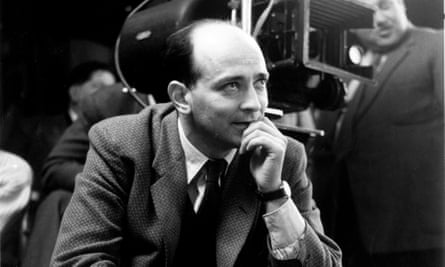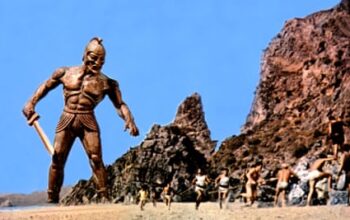In 2015, at the age of 106, Nicholas Winton passed away and was considered by many to be a secular saint in Britain.
His story has been recounted numerous times. Towards the end of 1938, the people of Prague were preparing for a potential invasion by Germany. A friend invited Winton to see the dire situation for himself, prompting him to arrange eight Kindertransports that ultimately rescued 669 Czech Jewish children and brought them to safety in Britain.
For nearly 50 years, he remained quiet about the rescue, but was eventually exposed on Esther Rantzen’s show, That’s Life! in 1988. In a memorable moment, he was surprised to be surrounded by a crowd of individuals who all owed their existence to him.
As my father was among the “children” of Winton, my two brothers and I, along with our five children and three grandchildren, owe our existence to him. Therefore, I had high expectations for James Hawes’ latest biographical film, One Life, and was thrilled to receive an invitation to the premiere. Unfortunately, the end product is disappointingly sentimental.
The main issue is that the movie is based on a relatively thin memoir, If It’s Not Impossible …, written by Barbara Winton, the daughter of Winton who also acted as an executive producer until her passing. It movingly depicts the rescue itself and dispels some common misconceptions. Instead of the comforting notion that the Kindertransports were a shining example of British decency in welcoming persecuted refugees, we see how challenging it was for Winton to persuade or pressure immigration officials to quickly issue visas, and to secure foster families and sponsors willing to pay £50 per child to ensure they would not be a burden on public funds. The film also highlights that Winton was not working alone but had capable assistance from individuals like Doreen Warriner and Trevor Chadwick, who handled the Czech side of the operation and faced greater physical risks.
However, the tense happenings of the late 1930s are interrupted by moments of the cantankerous and aging Winton (portrayed excellently by Anthony Hopkins) worrying about the growing piles of paperwork and, specifically, the fate of his scrapbook filled with photographs of all the children he rescued through the Kindertransport. This extraordinary artifact catches the eye of Elisabeth Maxwell, the wife of media mogul Robert Maxwell, who arranges for an article to be published in the Sunday Mirror and for Winton to make appearances on That’s Life! His time in the limelight of show business serves as the pinnacle of One Life.
My father, who is a renowned film director named Karel Reisz, declined to participate in the programs due to his concern that they would be overly sentimental and manipulative. The producers tried to emotionally manipulate him into changing his mind, but he stood his ground. After watching the programs on screen, I understand his perspective.

The new movie does not cover Elisabeth Maxwell’s role in organizing a Holocaust conference called Remembering for the Future in 1988. This conference included a semi-private gathering where Winton was able to meet Kindertransportees and their families in a more casual setting. This event was incredibly memorable and marked a significant moment in my strained relationship with my father, as he was able to open up about his difficult past for the first time.
The former child refugees were overjoyed to have the opportunity to personally thank Winton. They expressed their happiness for being alive and their pride in their accomplishments in their personal and professional lives. However, many of them were still visibly traumatized and reverted back to their childhood selves in front of me. Some shared memories from their train journeys across Europe, including a heartwarming moment when they reached safe territory and were greeted with hot chocolate. The celebration was bittersweet as they reflected on the families they had to leave behind in Czechoslovakia. This event truly captured the emotional complexity of the Kindertransport, unlike the overly positive portrayal often seen in shows like “That’s Life!” and now in biopics. It is surprising that a film about this topic would solely focus on Winton and not delve into the lives of the rescued children afterwards.
The conclusion does not capture the true essence of what made Winton so inspiring. He embodied a rare English stereotype seen in war-time films: practical, unemotional, but fundamentally good. Despite facing immense time and resource constraints, he remained focused on rescuing as many children as possible, even if it meant breaking the rules. He was also remarkably unsentimental, treating the operation like a business. In an interview, he stated, “My only concern was getting the children to England, and I didn’t care what happened to them afterwards, because even the worst that could happen in England was better than being in the fire.”
Winton was not one to seek attention or engage in superficial displays of emotion or virtue. During the premiere of One Life, similar to the show That’s Life!, attendees were prompted to stand if they owed their existence to Nicholas Winton. It was certainly a touching moment, but it also raised the question of the discomfort in creating a feel-good film about someone whose life should not only inspire us, but also push us to contemplate how we can also make a positive impact.
Source: theguardian.com


